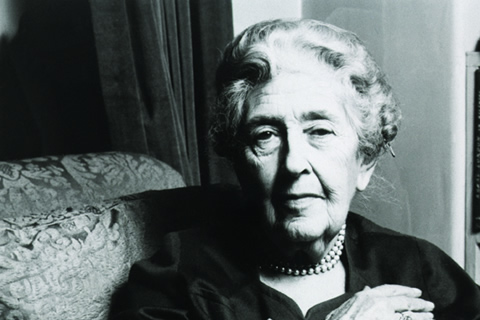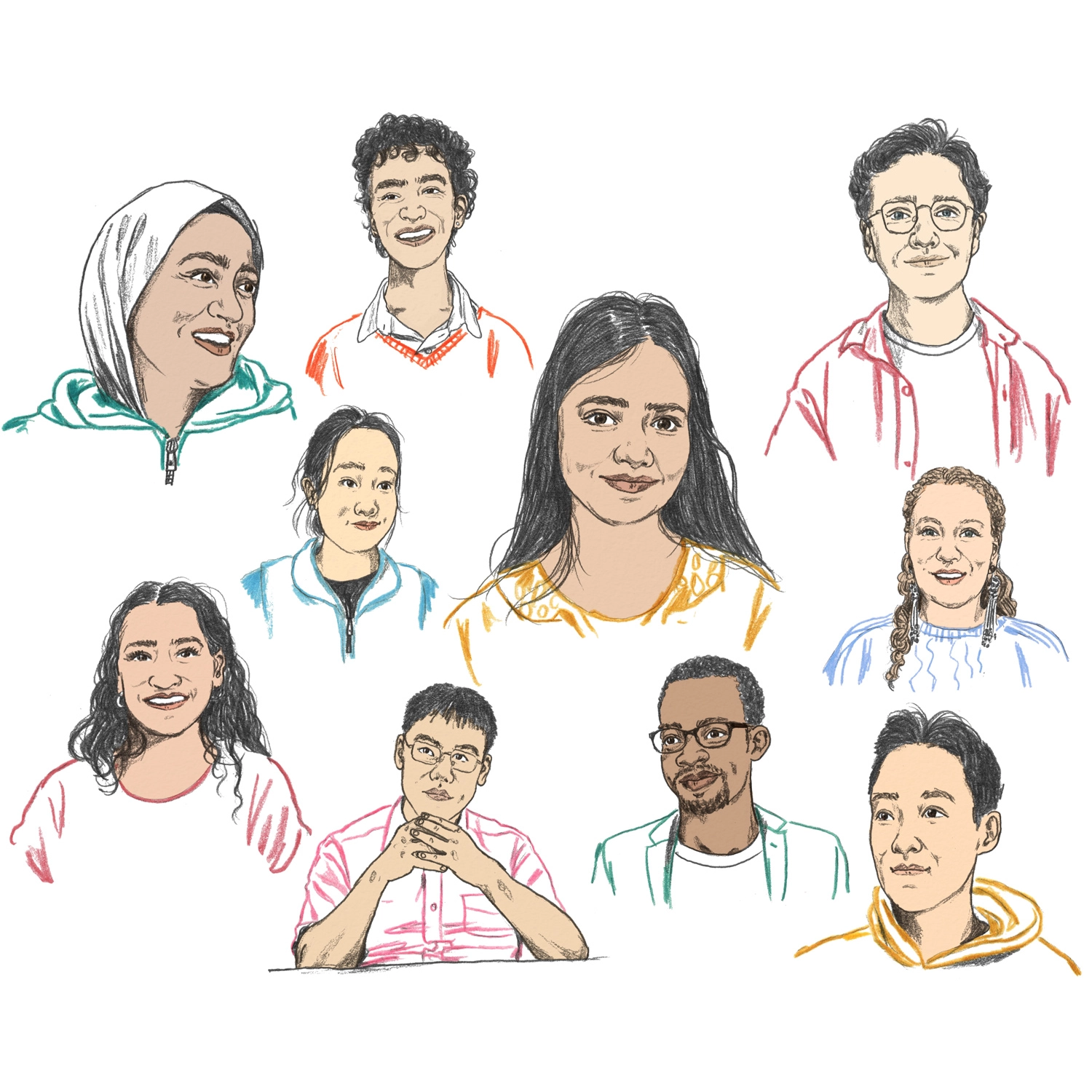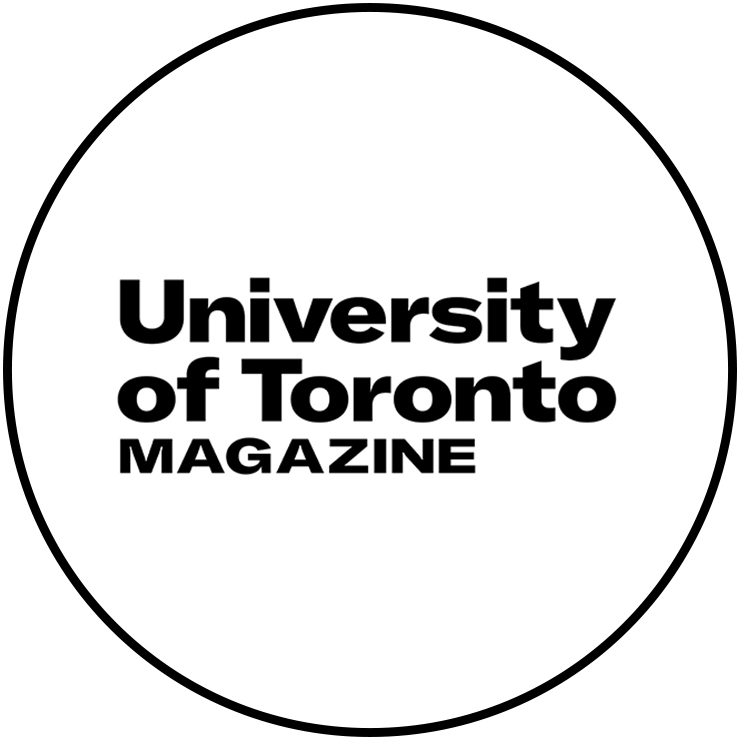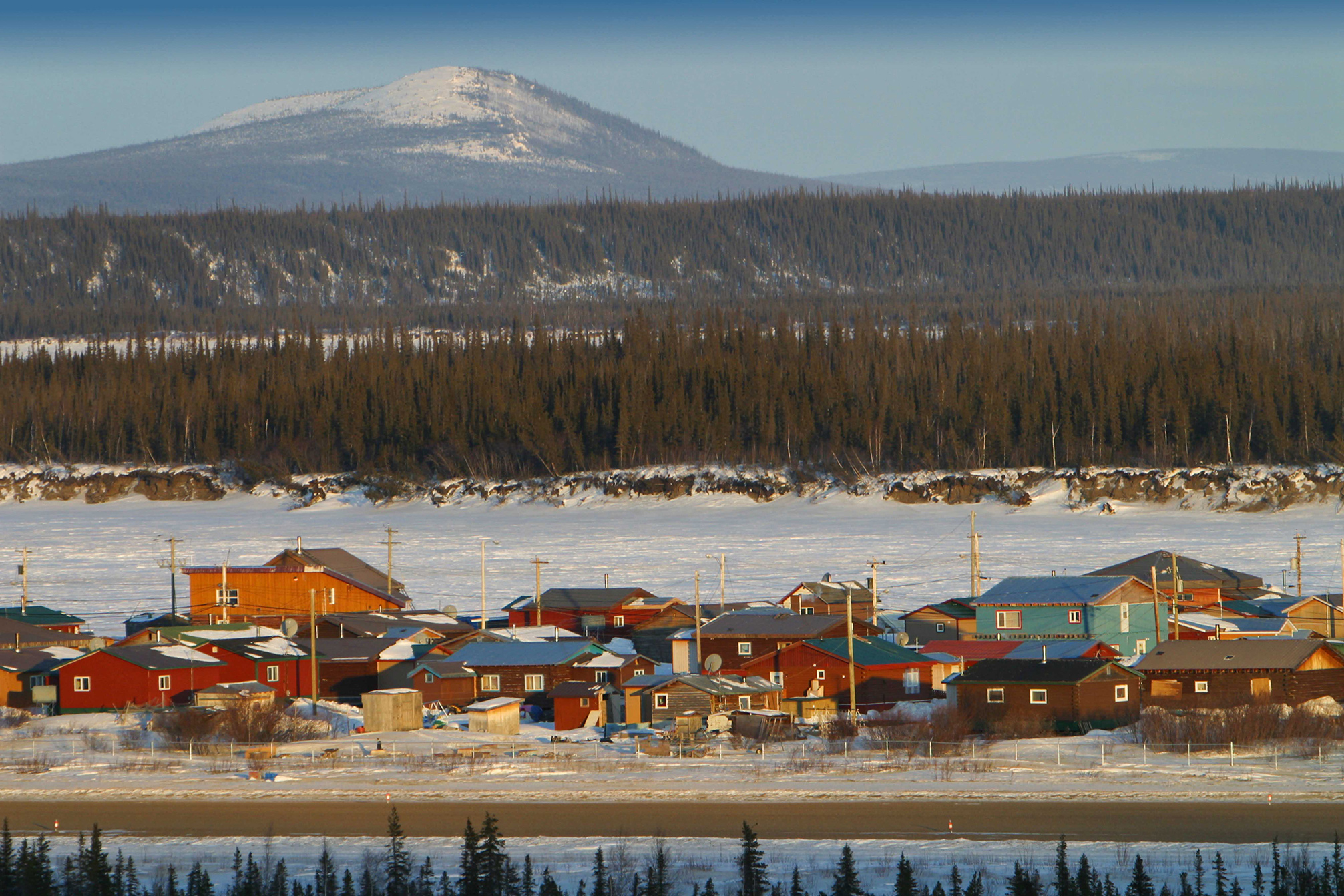
What if … we could eliminate carbon emissions much faster?
Last summer, the settlement of Old Crow flipped a switch and started generating electricity from newly installed solar panels. The small Yukon community, located just north of the Arctic Circle, had until then been completely dependent on diesel generators. The solar panels allow it to run on clean energy during the long Arctic summer days, and will eventually create more electricity than the community can use.
But when the extended winter nights come, Old Crow will still rely on the generators. There is simply no good way to store all that surplus electricity for use after the sun stops shining.
A project led by U of T could change that. Read the full article
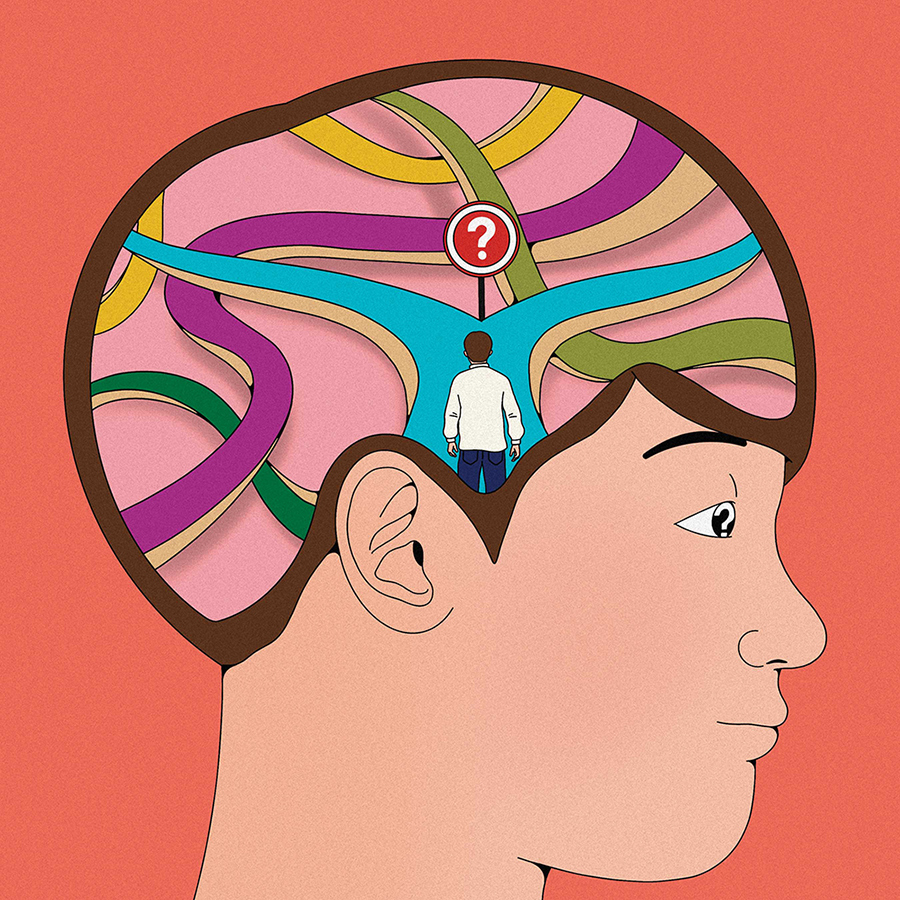
What if … insights from business and psychology could steer people toward better decisions?
People often make decisions that are detrimental to themselves – or society. They smoke cigarettes. They don’t save enough for retirement. They neglect to get the flu shot. Researchers at Behavioural Economics in Action at Rotman (BEAR), a group that operates at the intersection of psychology, economics and management, are interested in what influences people’s decisions – and how these factors can be used to nudge them toward more positive results. Read the full article
What if … you could make connections that last a lifetime?
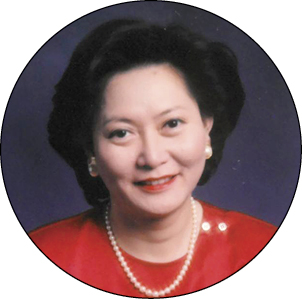
A retired educator, Evelyn Man (PhD 1997 OISE), serves as a governor of the U of T (Hong Kong) Foundation.
“Volunteering with U of T is great for building lasting connections. The idea of collaboration and teamwork, and of belonging to an alumni community, are extremely important to me. No individual or institution – no matter how talented or wealthy or determined they are – will go far unless they are part of a team.”
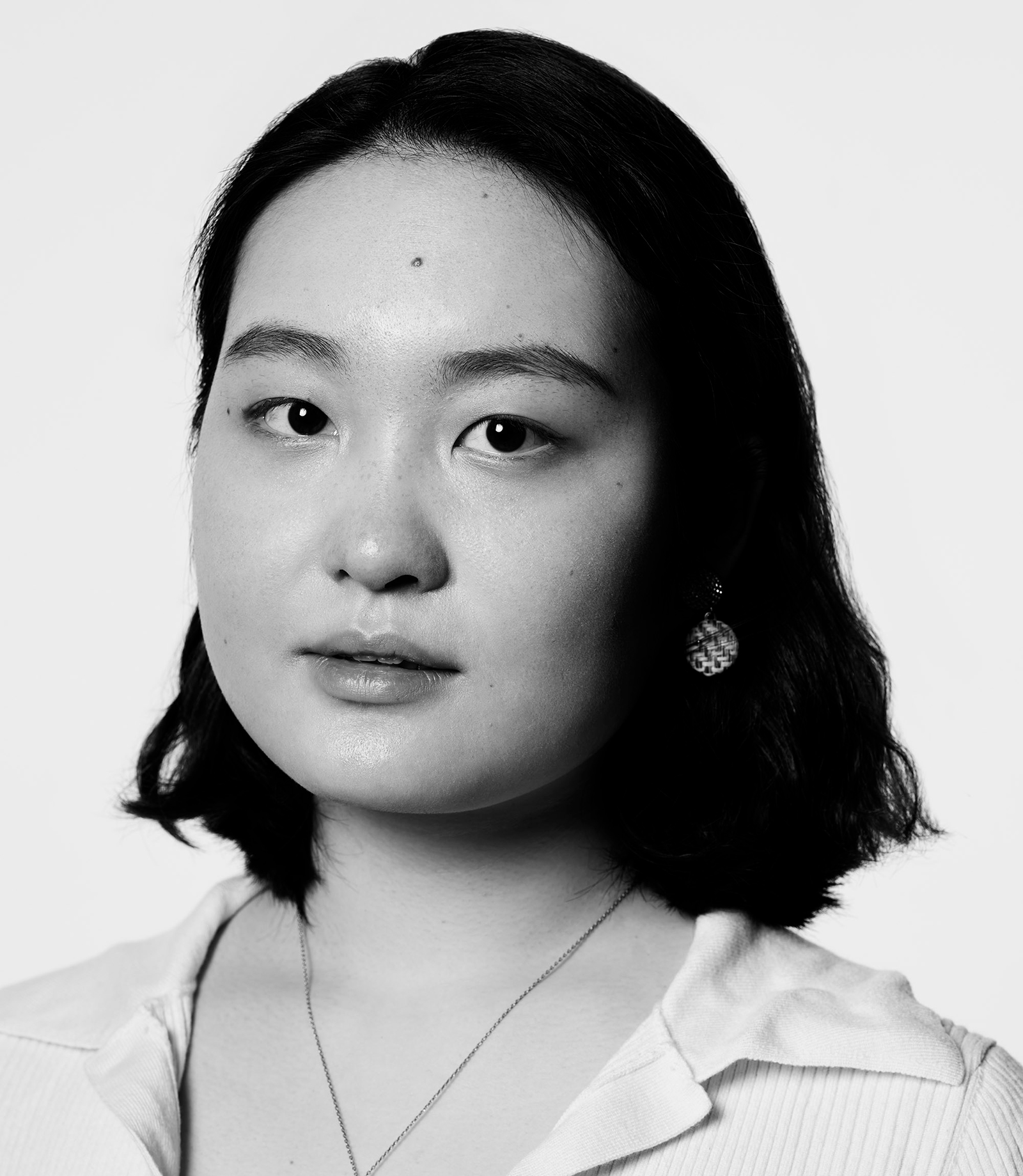
What if … U of T students could help improve the mental health of youth worldwide?
During the fall of 2020, Chen Yang noticed that some of her fellow students were in distress. On top of the usual academic demands and personal worries, the pandemic showed no signs of ending and virtual learning was still relatively new. As someone who had struggled with her own mental health in the past, Yang – a student at the Daniels Faculty of Architecture, Landscape, and Design – tried to help friends by sharing the wellness strategies that worked for her. But there was only so much she could do. Then she heard about a chance to improve students’ mental well-being on a much larger scale. Read the full article
What if … having a seat at the table was just the start?
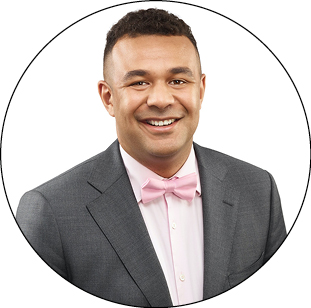 Solomon McKenzie (JD 2019), an associate at McCarthy Tetrault, volunteers with the Black Future Lawyers program at U of T Law
Solomon McKenzie (JD 2019), an associate at McCarthy Tetrault, volunteers with the Black Future Lawyers program at U of T Law
“Traditional models of inclusiveness have focused on giving diverse groups of people seats at the table. But real inclusivity means more than that: it means making sure they feel comfortable at the table – and want to stay at the table. It’s important to me to invest my time in programs such as Black Future Lawyers that not only talk about getting folks into law school but also make sure they thrive there.”
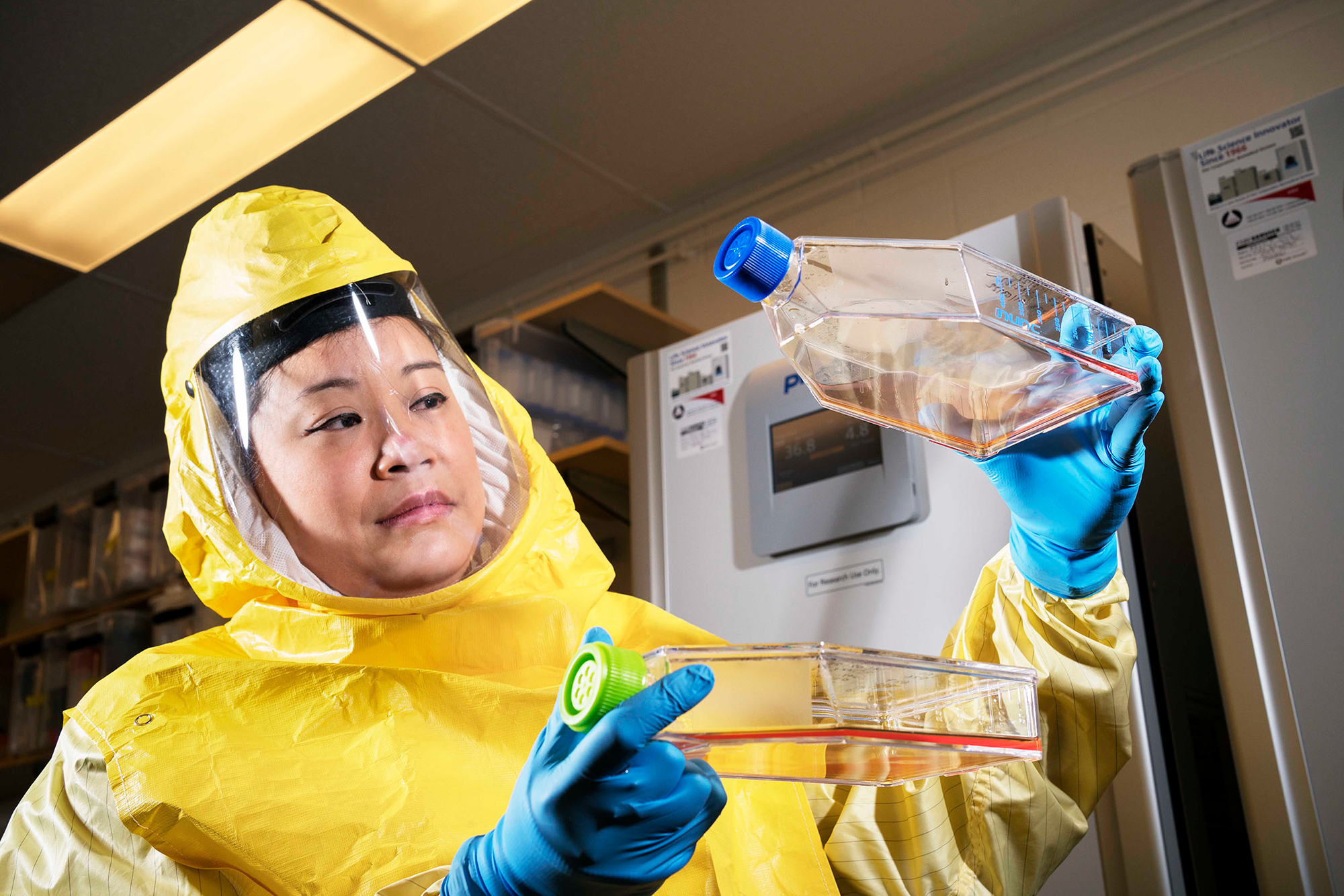
What if … we could prevent the next pandemic?
While many researchers remain focused on bringing the COVID-19 pandemic to an end, Scott Gray-Owen, a professor of molecular genetics at U of T, has his sights set on preventing the next one.
Gray-Owen is the inaugural director of a new, forward-looking initiative at U of T called the Emerging and Pandemic Infections Consortium (EPIC). Its aim is to combat new infectious diseases and prevent the rise of future pandemics. “COVID showed us a lot of weaknesses in our understanding of and response to infections,” he says. “It’s important we keep focused on the health burden that infectious diseases cause, even after the pandemic ends.” Read the full article

What if … no student experienced financial hardship while attending U of T?
As director of the Master of Science in Sustainability Management program at U of T Mississauga, Prof. Shashi Kant has seen up close how some students have struggled during the pandemic with lost employment or income. He became concerned: how would they pay rent and put food on the table? He wondered how he might support students as they navigate these challenges.
So last year, he made a donation to create the Equity and Diversity Award, which grants $2,500 annually to one student in the Master of Science in Sustainability Management program. Because he wanted the award to go to students for whom it would make the biggest difference, he stipulated that financial need – not academic merit – be the main qualifying criterion. Read the full article
What if … every student had a mentor?
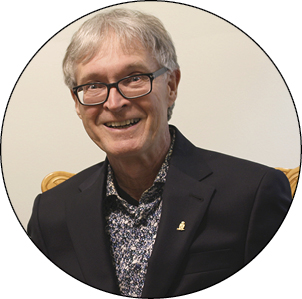 Jim Hartley (BA 1980 UTSC) is a mentor in U of T Scarborough’s Partners in Leadership Program.
Jim Hartley (BA 1980 UTSC) is a mentor in U of T Scarborough’s Partners in Leadership Program.
“When a student says to me, ‘I never thought about it that way,’ or ‘I appreciate your perspective’ – these words are very nice to hear. They make me feel that my advice has been useful. Sometimes mentoring also prompts me to think in a different way about my own life experiences.”
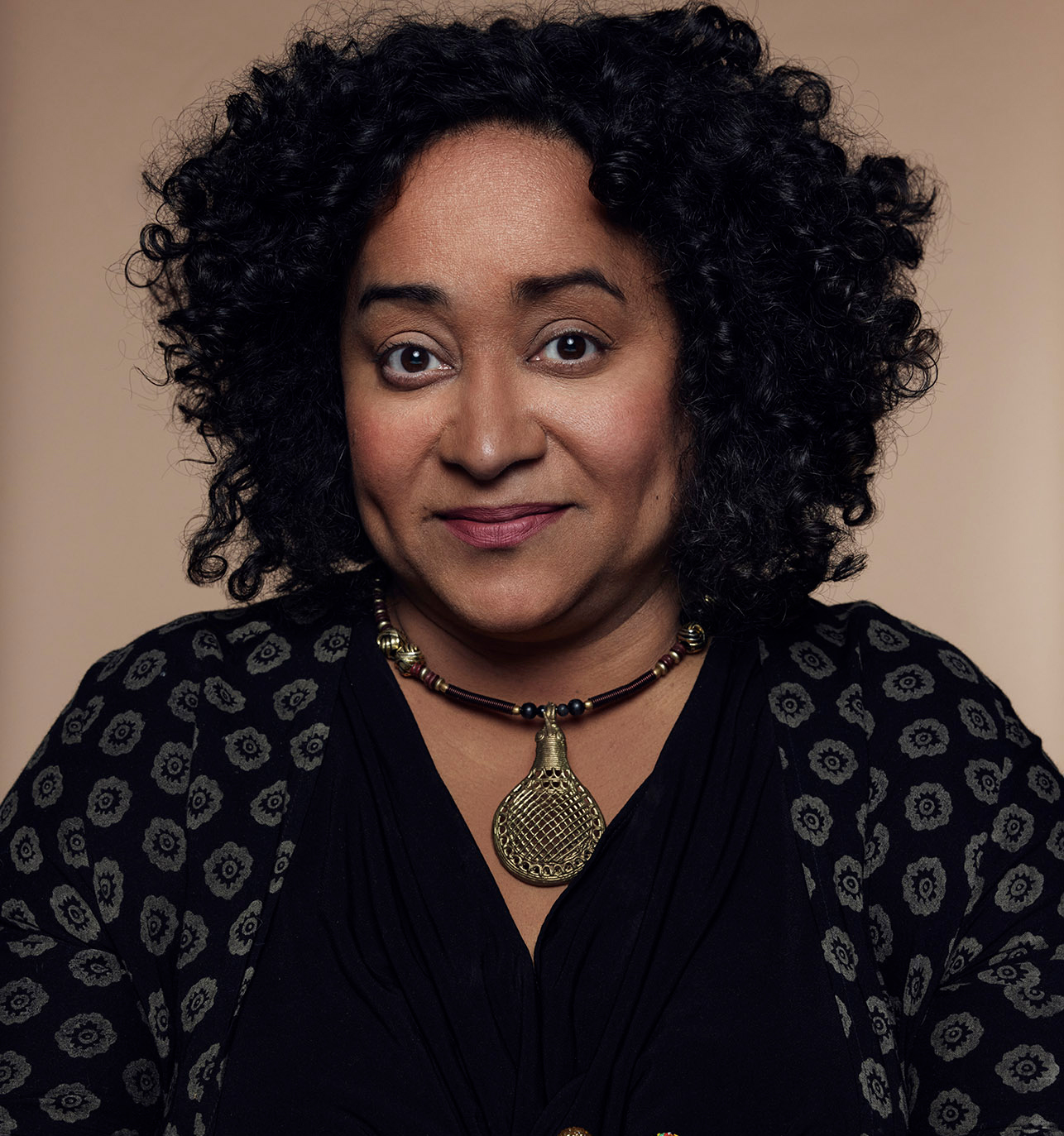
What if … we did more to support Black scholars?
For immigrants to Canada from Africa and the Caribbean who can’t get access to traditional loans, the answer to their financial needs is sometimes each other. A group of acquaintances will come together to create what is essentially an informal banking co-operative.
To academics, this practice is known as a “rotating savings and credit association” or ROSCA. The groups are little-known to most Canadians, but Caroline Shenaz Hossein, an associate professor of global development and political science at U of T Scarborough, has spoken with hundreds of members of these associations in Canada and the Caribbean for a book she’s writing. Read the full article
What if … alumni of all ages got involved with U of T?
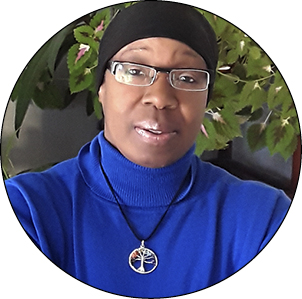 Andria Allen (MSW 2005) is president of the Factor-Inwentash Faculty of Social Work’s alumni association and has served as a member of the faculty’s diversity and equity committee.
Andria Allen (MSW 2005) is president of the Factor-Inwentash Faculty of Social Work’s alumni association and has served as a member of the faculty’s diversity and equity committee.
“After you graduate, it’s easy to get caught up in your career. Coming back feels like a reunion. It’s been an honour to meet people who graduated 20 or 30 years before me and find out they are still motivated to be involved with the faculty. We’ve had people at some of our events who are in their 80s. It’s so exciting to see them alongside the next generation of social workers.”
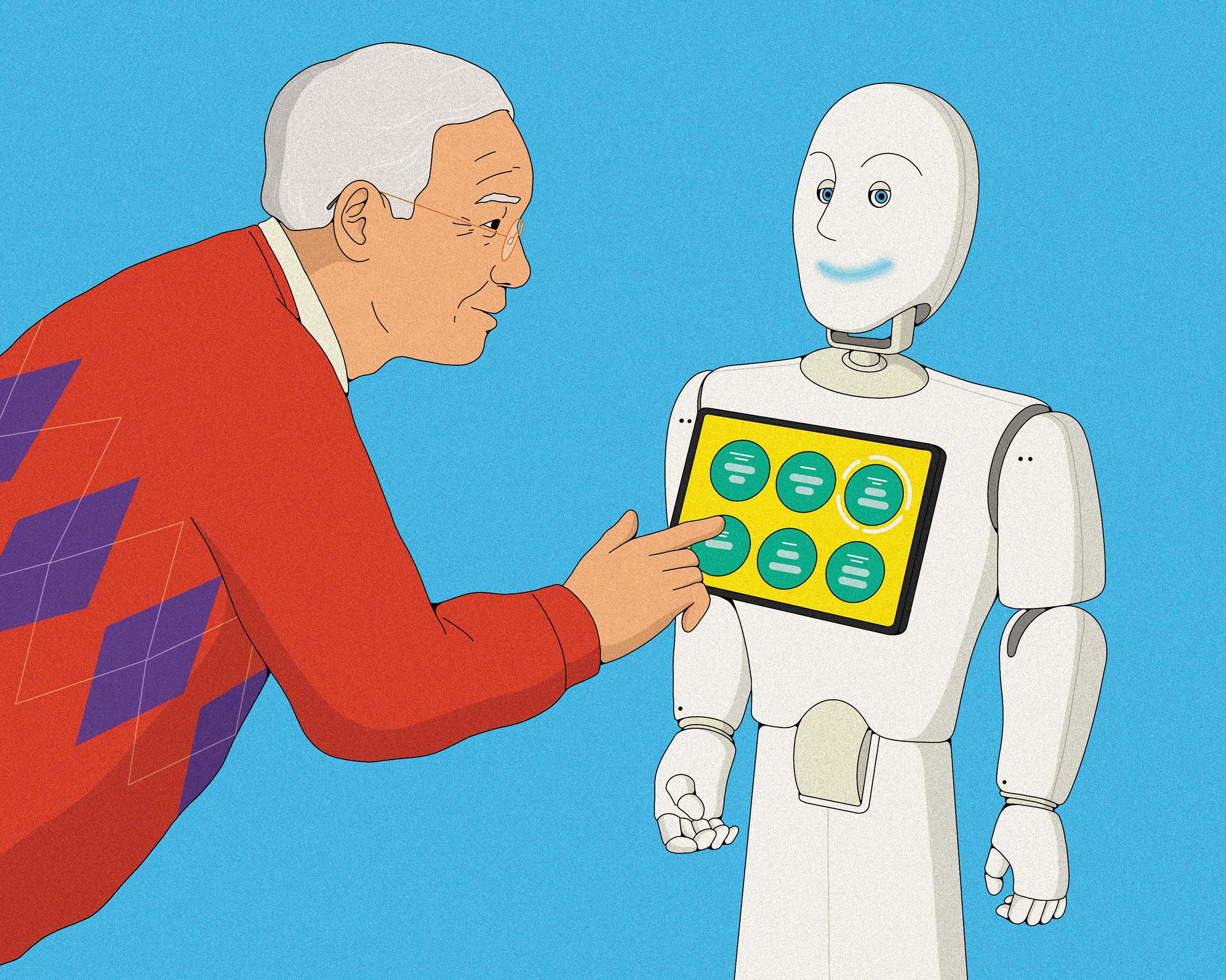
What if … we could build robots for almost any purpose?
With micrometre-level precision, today’s factory robots can assemble thousands of components into a powerful electronic device such as the phone in your pocket. They can perform these intricate and repetitive tasks with great dexterity – in highly controlled settings such as manufacturing plants.
But the world is bigger – and more unpredictable – than a factory floor. Tomorrow’s robots will need to be able to adapt on the fly to changing real-world situations. Consider an autonomous vehicle trying to drive safely through a sudden snowstorm, or search-and-rescue robots seeking earthquake survivors in difficult and shifting terrain. Advances in AI have enabled computers to better understand what they “see” and “hear,” but many challenges remain. Read the full article
What if … we reimagined the role of pharmacists in Canadian health care?

During the pandemic, pharmacies have become community hubs for distributing personal protective equipment and testing kits, as well as for administering vaccinations. But well before COVID-19 emerged, U of T’s Leslie Dan Faculty of Pharmacy was already re-envisioning the role of pharmacies in Canadian health care and determining what this means for how it trains pharmacy students. Read the full article
What if … Indigenous peoples had a greater say in the law?
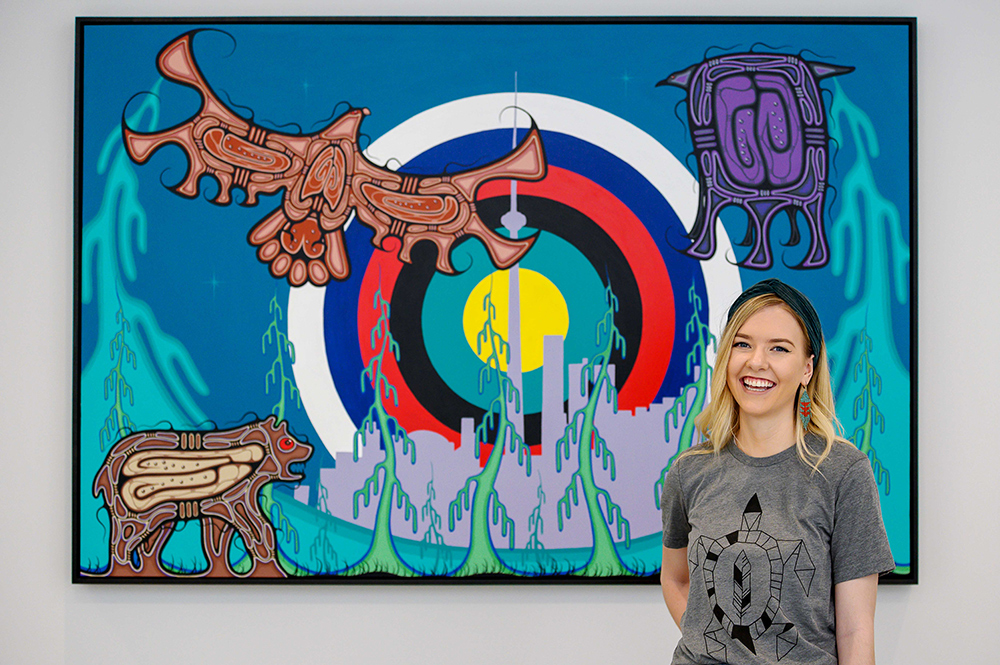
Originally from Treaty Six territory in Saskatchewan, Karlie Nordstrom is now in her final year of a law degree at U of T. She spoke recently with University of Toronto Magazine about why she wanted to attend law school, the importance of Indigenous representation in the legal profession, and why the financial support she received from the Norman and Gay Loveland Bursary for Indigenous students was so helpful. Read the full article
What if … more people understood the impact of climate change on Black communities?
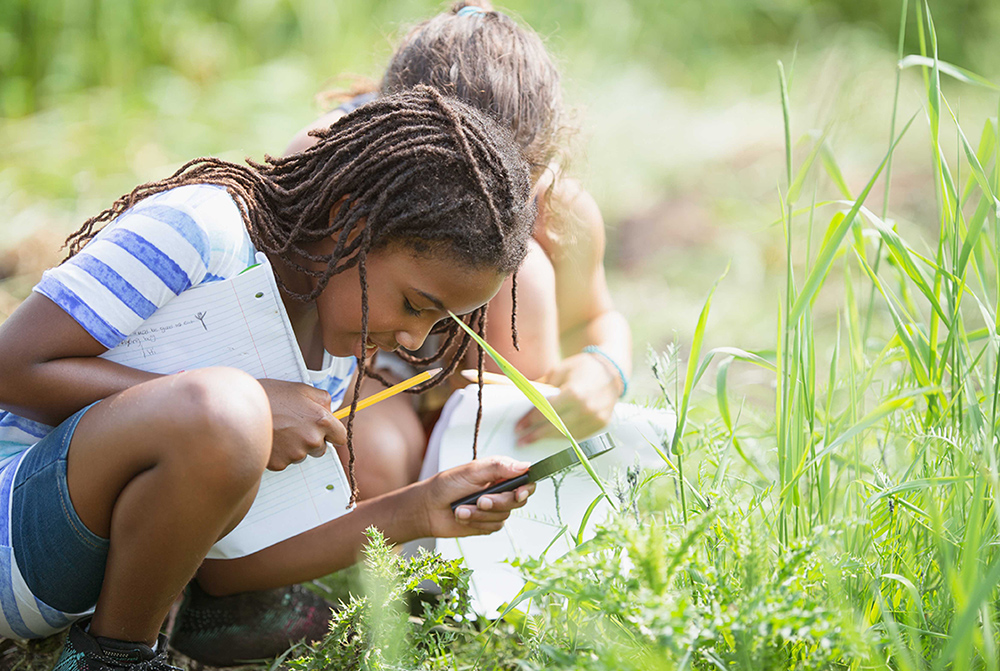
Elementary school children in Ontario are learning about the science of global warming, but Fikile Nxumalo, an assistant professor at OISE, thinks they may be missing an important piece of the climate change picture: its effects on health and well-being, particularly in Black communities. Read the full article
What if … aspiring entrepreneurs could learn from alumni business owners?
 Nuha Siddiqui (BCom 2018 UC), CEO of Erthos, speaks at events hosted by U of T Entrepreneurship and the Rotman School of Management, and serves as a resource for other young entrepreneurs.
Nuha Siddiqui (BCom 2018 UC), CEO of Erthos, speaks at events hosted by U of T Entrepreneurship and the Rotman School of Management, and serves as a resource for other young entrepreneurs.
“Starting a business while attending U of T taught me that university was the best time to take a chance. I share with students my perspective that building your own startup is a viable career. And if you’re not ready to start a business now, there are always opportunities to join other incredible Canadian startups.”
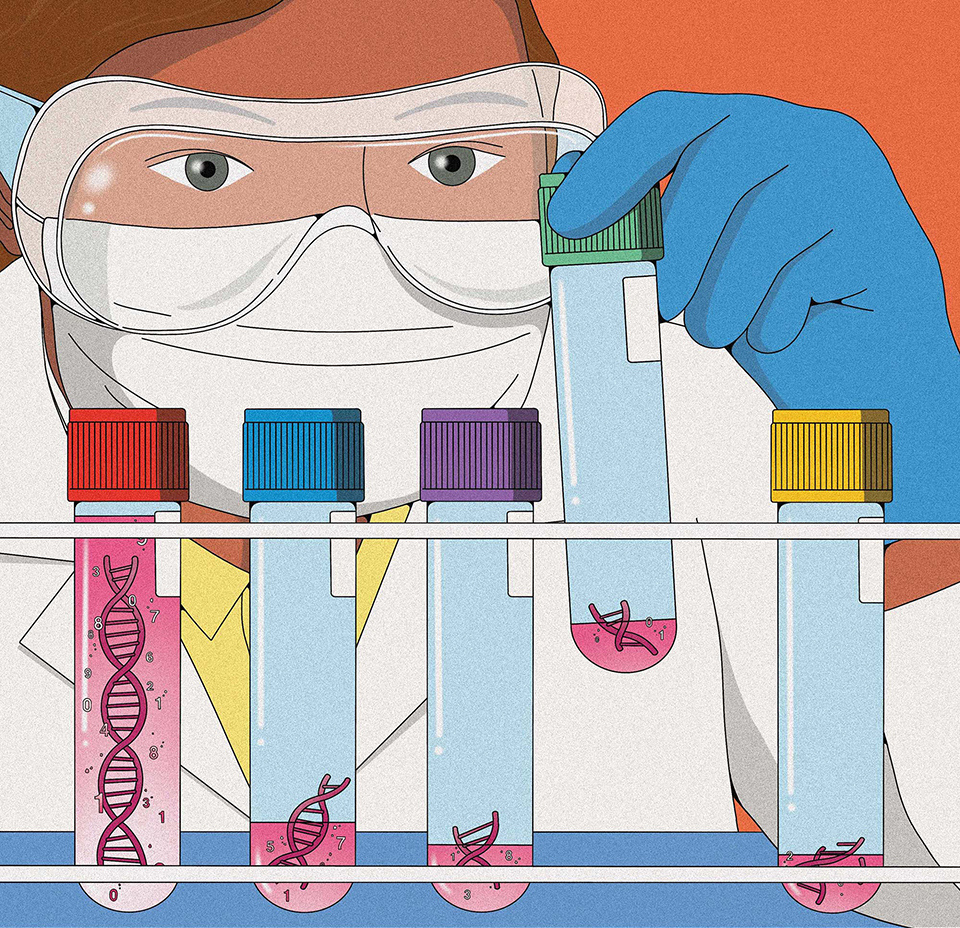
What if … we made better use of complex data to gain valuable insights about the world?
Data, data everywhere – but what to do with it all? While today’s technologies are very good at generating data, they’re not so good at analyzing it – especially massive volumes of it. For instance, powerful new telescopes will soon create more data each year than the entire internet. How do we turn all that data into information that can guide discovery in many different fields, from health care to astrophysics?
That’s where data science comes in. Read the full article
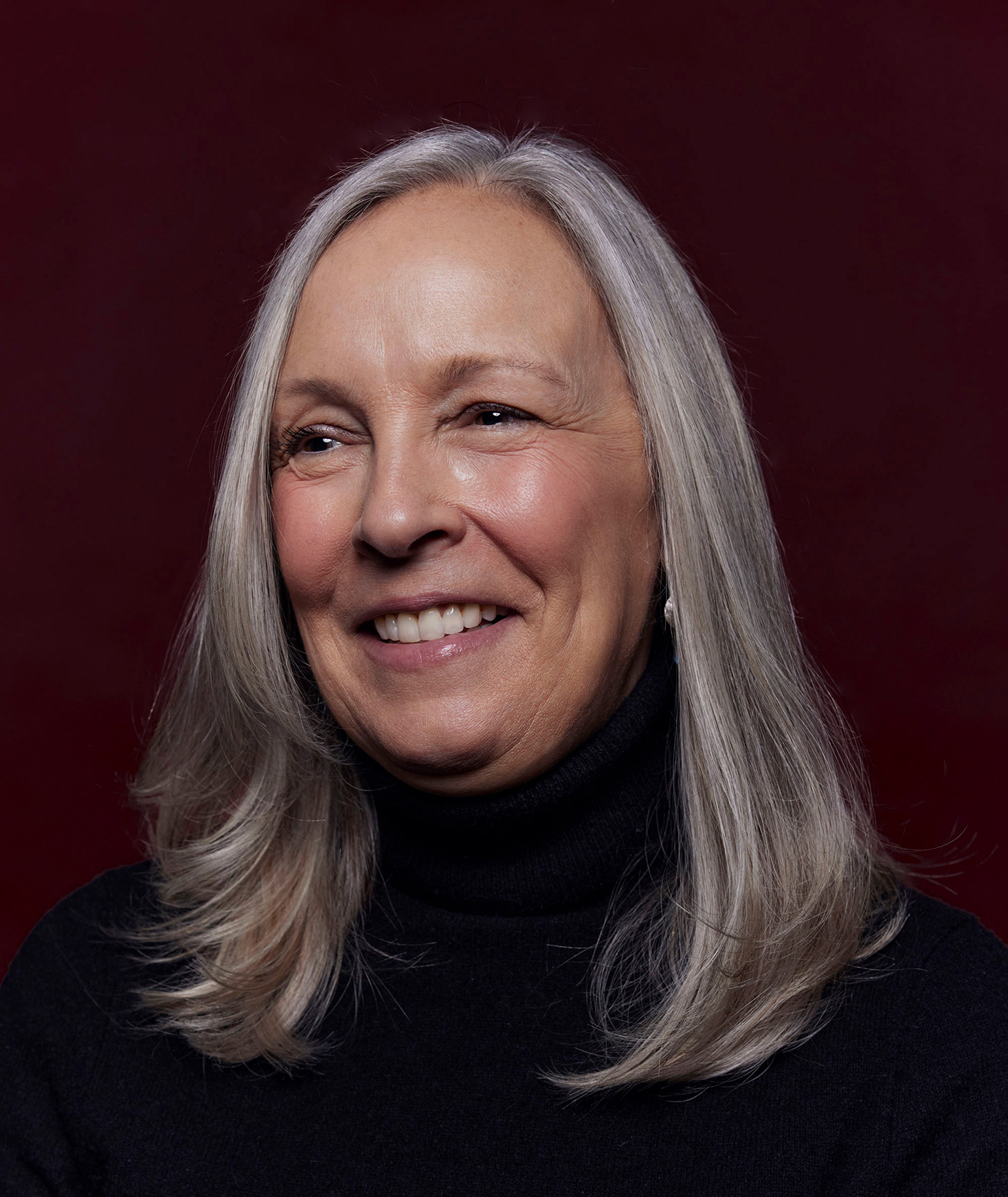
What if … advances in artificial intelligence led to a better future for all?
Artificial intelligence already powers countless computer applications. As the technology evolves, Gillian Hadfield, the director of U of T’s Schwartz Reisman Institute for Technology and Society, wants to ensure that it does so in ways that benefit society. She spoke recently with University of Toronto Magazine. Read the full article
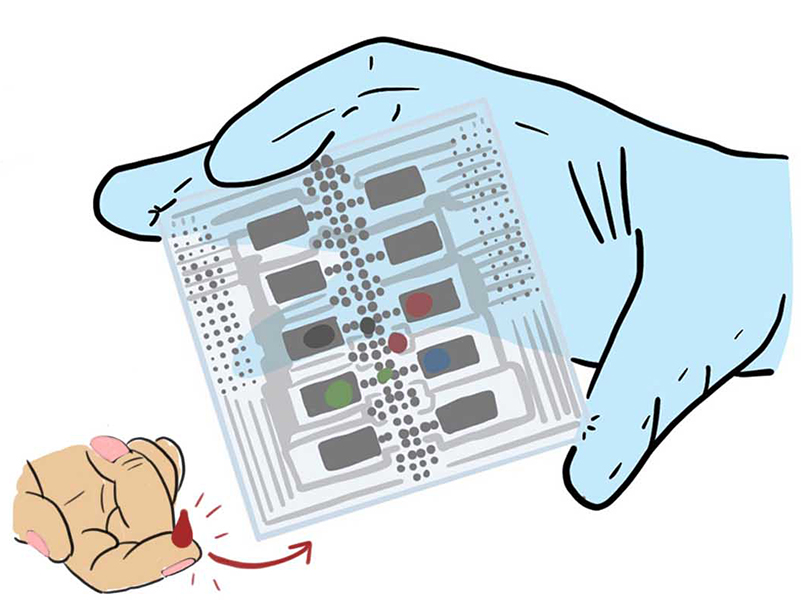
What if … we could treat heart failure remotely?
If you’re among the one million Canadians living with heart failure – a weak or damaged heart from a heart attack, high blood pressure, disease or a defect – you know how important it is to be monitored regularly. But this can be challenging if you live in a remote area, where getting bloodwork done or seeing a specialist could mean lengthy travel, delays in treatment and poorer patient outcomes.
Now imagine if you had a compact device that, with a tiny pinprick of blood, could measure cardiac biomarkers that indicate a heart attack or worsening congestive heart failure, give results within 45 minutes, and communicate wirelessly with health-care providers who could remotely prescribe treatment? Read the full article
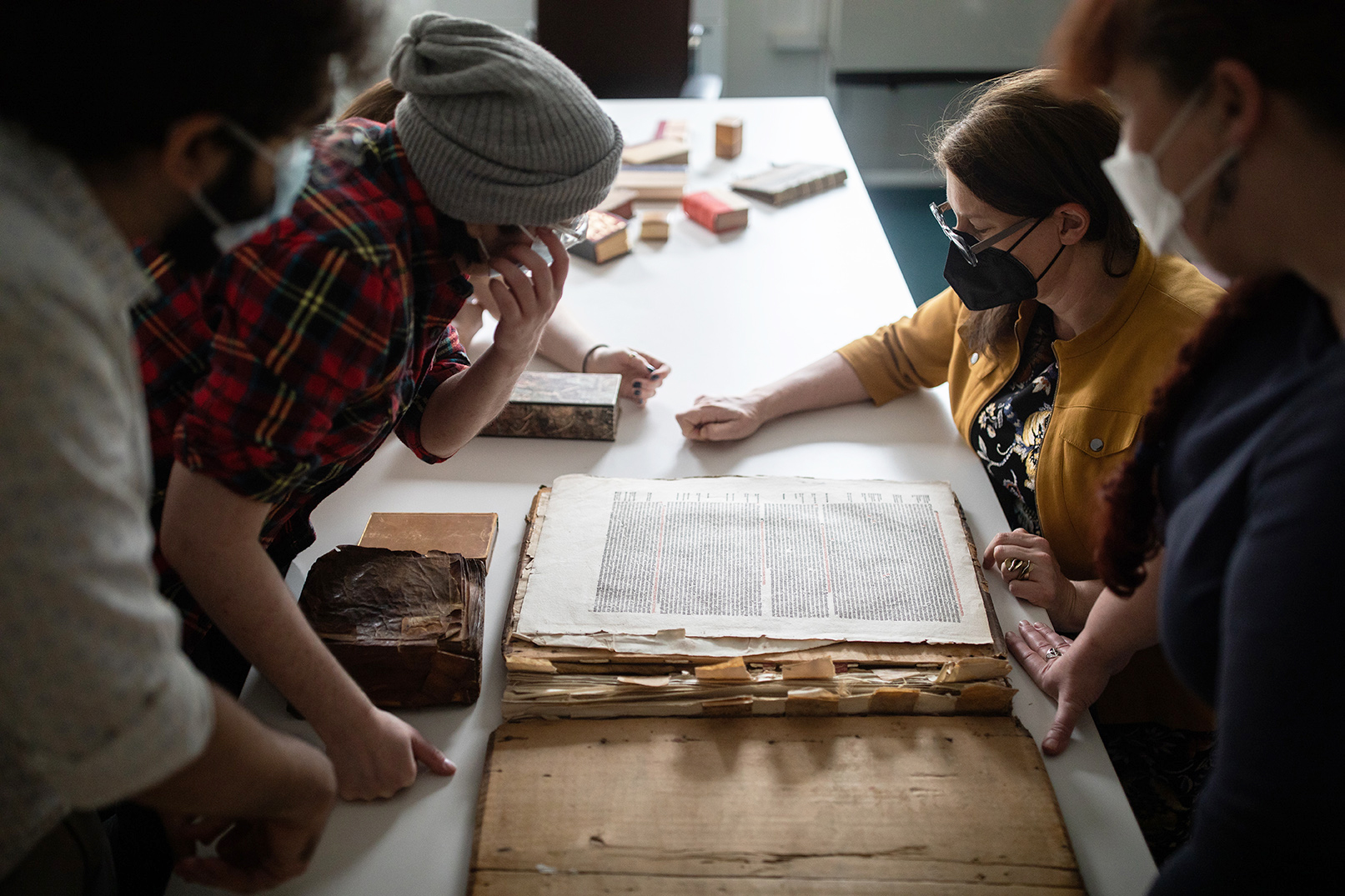
What if … we used advanced technologies to uncover secrets about ancient texts?
For many people, the story of the book starts with the Romans, climaxes with Gutenberg and slithers to an ignominious finale with Silicon Valley and the e-reader. The folks at The Book and the Silk Roads research project offer a different version of this tale.
Created three years ago as part of a larger project at U of T called the Critical Digital Humanities Initiative, the 60-odd collaborators who make up The Book and the Silk Roads group use a mix of humanist smarts and digital sleuthing to uncover alternative histories of book culture, especially their more pre-industrial, non-Western iterations. Read the full article
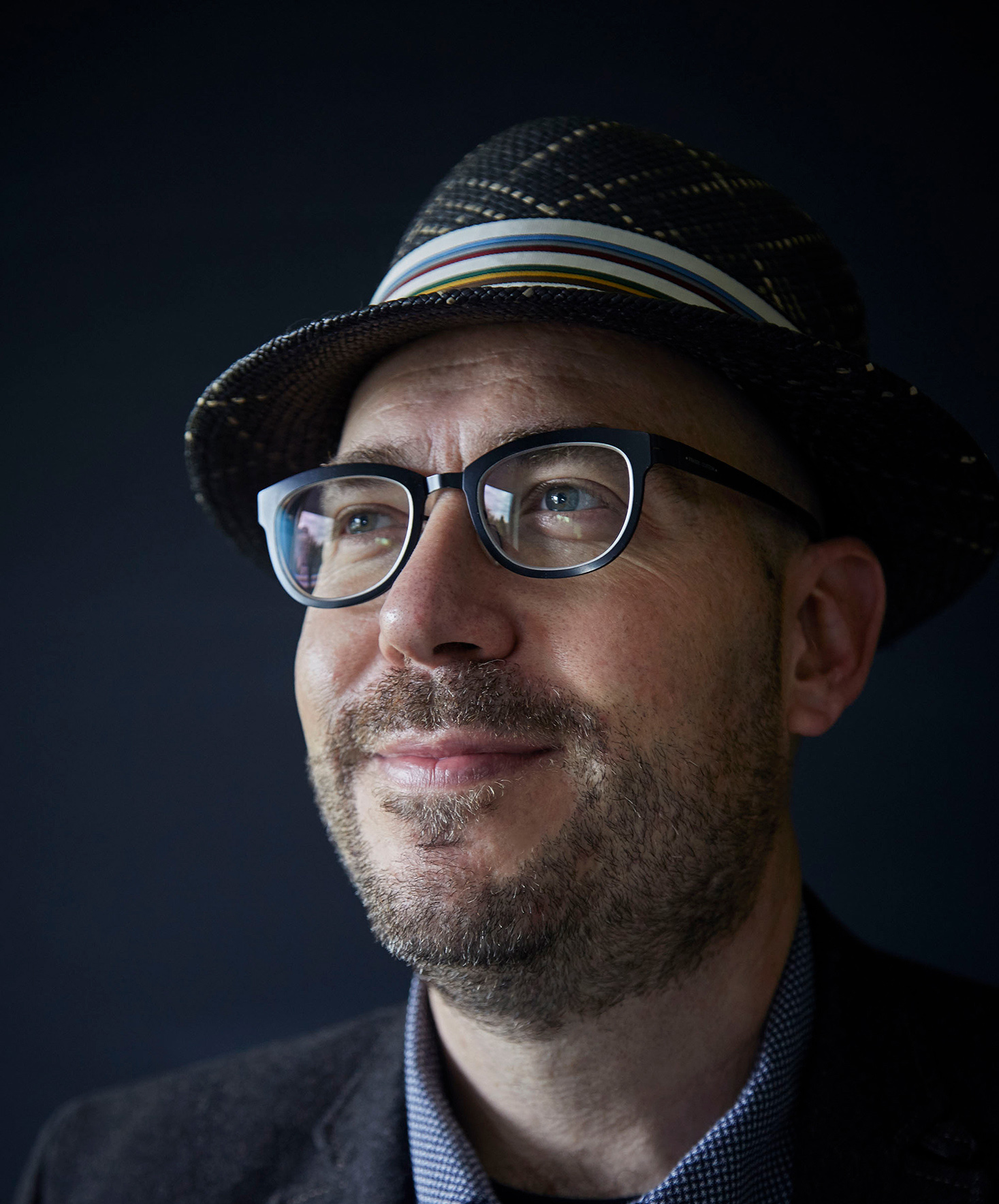
What if … we could develop new materials in a fraction of the time?
Artificial intelligence and machine learning have transformed just about every branch of science and engineering over the last decade or so, and materials science is no exception. U of T’s new Acceleration Consortium is poised to take this transformation to the next level, spearheading the rapid development of new, more efficient and more environmentally sustainable materials.
The consortium – a U of T-based global coalition of academia, industry and government designed to harness advances in materials science, robotics and AI to speed the discovery process – will bring new products to market much faster and far more economically than ever before, according to its director, Alán Aspuru-Guzik, the Canada 150 Research Chair in Theoretical and Quantum Chemistry. Read the full article
What if … speaking with students benefited them – and you?
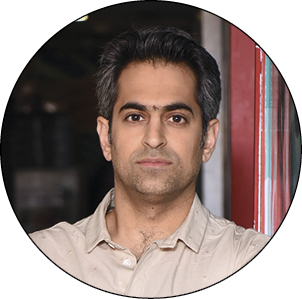 Film writer and director Richie Mehta (BA 2001 UTM) says he never refuses an invitation to speak to students at U of T Mississauga events.
Film writer and director Richie Mehta (BA 2001 UTM) says he never refuses an invitation to speak to students at U of T Mississauga events.
“I wish I’d had someone to answer my questions when I was in my final year at U of T Mississauga. Was it possible to have a viable career in the arts in Canada? Is there a set path, or does everyone improvise their own way? Now, for today’s students, I try to provide some of the answers. On the flipside, the students also remind me of the youthful motivation that I once had. It helps me re-energize!”
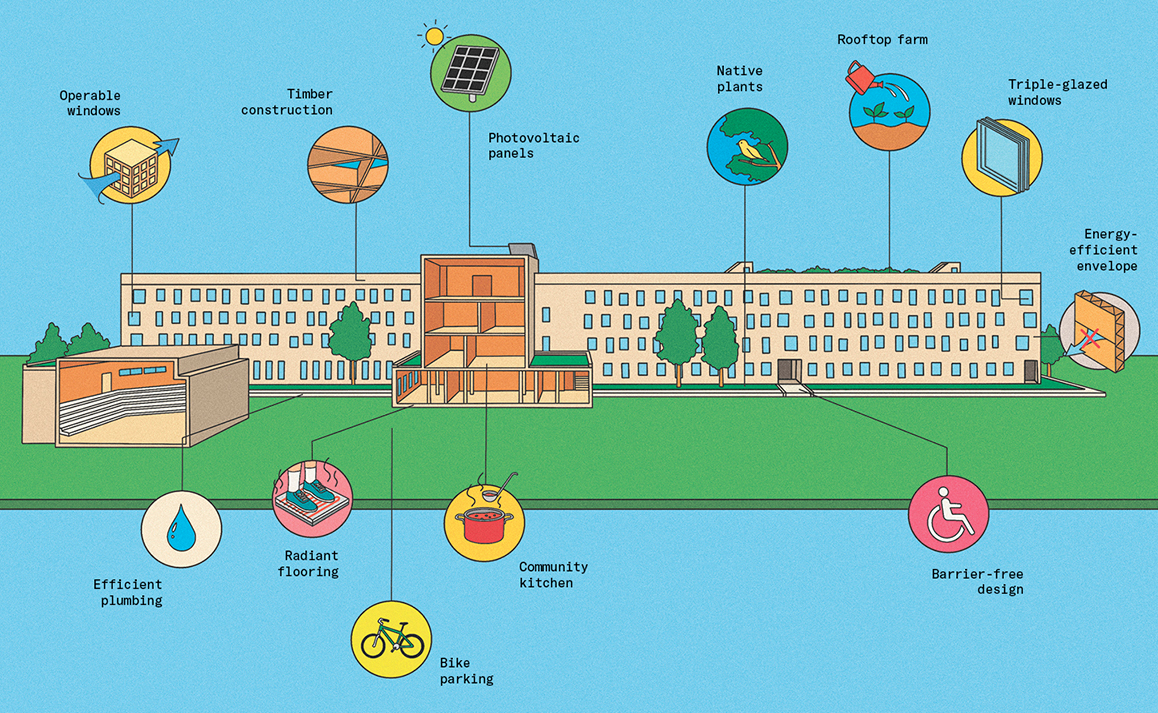
What if … new U of T buildings were built to the highest standards of accessibility and sustainability?
The Lawson Centre for Sustainability at Trinity College, a 350-bed residence and student hub supported by lead donors Brian and Joannah Lawson and many alumni, is part of a larger initiative to promote sustainability across the college.
The four-storey facility, scheduled for completion in fall 2024, will be designed to the highest environmental standards, with solar panels, a geothermal heating and cooling system and hybrid timber construction. It is expected to achieve zero carbon certification. Read the full article



